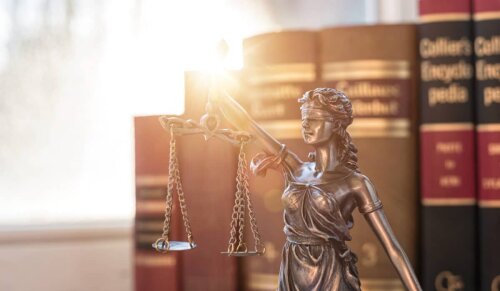Best Property Damage Lawyers in Washington
Share your needs with us, get contacted by law firms.
Free. Takes 2 min.
Or refine your search by selecting a city:
List of the best lawyers in Washington, United States
United States Property Damage Legal Questions answered by Lawyers
Browse our 1 legal question about Property Damage in United States and read the lawyer answers, or ask your own questions for free.
- MOVING COMPANY DAMAGED RENTAL HOME, FURNITURE AND NEW HOME
- MOVING COMPANY DAMAGED WALLS AND FURNITURE IN TWO HOUSES, THEY DIDNT USED PACKING BLANKETS OR MOVING EQUIPMENT, I FILED A DAMAGE CLAIM MID MOVE, AND RELIEVED THE WORKERS EARLY FROM SCHEDULED TIME TOOK PICS AND SUBMITTED TO THE MOVING COMPANY, NOW THE MOVING COMPANY IS INSINUATING WE CAUSED THE DAMAGE,... Read more →
-
Lawyer answer by T & A Legal
Hello, sorry about the damage to your walls and furniture. The moving company may be liable for a breach of contract or negligence. However, their liability will be determined largely by the contract between you and the moving company.Please note...
Read full answer
About Property Damage Law in Washington, United States
Property damage law in Washington state encompasses the legal rules and remedies available when a person's property is harmed or destroyed due to another's actions or negligence. This area of law covers a wide range of incidents - from car accidents and vandalism to natural disasters and construction defects. In Washington, property owners have the right to seek compensation for both real property (such as land or buildings) and personal property (such as vehicles, electronics, or personal items) that is damaged due to someone else's fault or negligence. The process typically involves identifying liable parties, assessing the extent of damage, and navigating state-specific legal procedures designed to resolve property-related disputes.
Why You May Need a Lawyer
Hiring a lawyer might be necessary in numerous property damage scenarios. Some of the most common situations include:
- If your insurance company denies, delays, or underpays your property damage claim
- When there is a dispute over who is at fault for the damage
- If the other party accuses you of causing damage and demands compensation
- When damage results from construction work, major accidents, or the actions of a neighbor
- If you are unsure about the value of your claim or your legal options
- For significant damages that affect your livelihood, health, or future property value
- When government entities or public projects are involved
- If there are complex insurance policies, such as in cases of natural disasters or business interruptions
Legal guidance ensures your rights are protected, your case is properly documented, and you receive the compensation you deserve.
Local Laws Overview
Washington state law defines property damage as the loss, harm, or destruction of property due to another person’s actions, negligence, recklessness, or intentional misconduct. Key aspects of property damage law in Washington include:
- Statute of limitations - For most property damage claims, you must file a lawsuit within three years from the date the damage occurred.
- Comparative fault - Washington follows the comparative fault doctrine, meaning if you are partly responsible for the damage, your compensation may be reduced by your percentage of fault.
- Insurance claims - State law regulates how insurance companies handle property damage claims, with specific frameworks for auto insurance, homeowner's insurance, and renters insurance.
- Intentional vs accidental damage - Different legal remedies and penalties may apply depending on whether the damage was accidental, due to negligence, or intentionally caused. Criminal charges may apply in cases of vandalism or arson.
- Public entity claims - Special notice requirements apply if your claim is against a local or state government agency.
Understanding the nuances of these laws is vital when making or defending against a property damage claim in Washington.
Frequently Asked Questions
What should I do first if my property in Washington is damaged?
Ensure safety for everyone on the premises, document the damage with photographs or videos, collect witness information if available, and report the incident to your insurance company or law enforcement as appropriate.
How long do I have to file a property damage claim in Washington?
You generally have three years from the date the damage occurred to file a lawsuit in court.
Will my insurance cover all types of property damage?
Not necessarily. Coverage depends on your specific policy and the cause of the damage. Review your policy or consult a lawyer if you are unsure what is covered.
What if the responsible party does not have insurance?
You may still pursue compensation through a civil lawsuit against the at-fault party. If they lack sufficient resources, recovery may be challenging, but an attorney can help evaluate your options.
Can I recover for emotional distress related to my property loss?
Typically, property damage claims in Washington focus on the value of the lost or damaged property. Claims for emotional distress are rare and may only be available in special circumstances.
How is the value of my damaged property determined?
Value is usually based on market value at the time of the loss or the cost to repair or replace the property, whichever is less, according to Washington law and your insurance policy terms.
What happens if I am partially at fault for the property damage?
Under Washington's comparative fault rules, your compensation may be reduced by your percentage of fault. For example, if you are found 20 percent at fault, your recovery is reduced by that amount.
Do I need a lawyer to file a property damage claim?
You are not required to have a lawyer, but an attorney can help you navigate the process, especially in disputed claims, large dollar amounts, or when complex insurance issues arise.
Can I sue my neighbor for property damage caused by trees, water, or shared fences?
Yes, Washington law allows property owners to seek compensation if a neighbor's actions or negligence causes property damage, but there are specific procedures and possible defenses in these cases.
What if the government is responsible for my property damage?
Special rules apply, including advance notice requirements and shorter timelines to file a claim. Consulting an attorney is strongly advised if a state or local agency may be liable.
Additional Resources
Those needing information or assistance with property damage matters in Washington may find support through the following organizations:
- Washington State Office of the Insurance Commissioner
- Washington State Bar Association - Lawyer referral and public resources
- Consumer Protection Division of the Washington Attorney General’s Office
- Local legal aid organizations such as Northwest Justice Project
- City and county codes and claims offices for government-related damage
- Washington Courts - Self-help and legal education materials
Next Steps
If you need legal assistance with property damage in Washington, consider the following steps:
- Document all damage and communications with the party or insurer involved
- Review your insurance policy and any relevant legal documents
- Contact your insurance provider to initiate a claim
- Consult with an experienced property damage attorney for a case review, especially if your damages are significant or liability is disputed
- File the appropriate claim or lawsuit within the required time limits
- Utilize state and local resources for education and referrals
Taking early and informed action can increase your chances of a favorable outcome and ensure your rights are protected under Washington law.
Lawzana helps you find the best lawyers and law firms in Washington through a curated and pre-screened list of qualified legal professionals. Our platform offers rankings and detailed profiles of attorneys and law firms, allowing you to compare based on practice areas, including Property Damage, experience, and client feedback.
Each profile includes a description of the firm's areas of practice, client reviews, team members and partners, year of establishment, spoken languages, office locations, contact information, social media presence, and any published articles or resources. Most firms on our platform speak English and are experienced in both local and international legal matters.
Get a quote from top-rated law firms in Washington, United States — quickly, securely, and without unnecessary hassle.
Disclaimer:
The information provided on this page is for general informational purposes only and does not constitute legal advice. While we strive to ensure the accuracy and relevance of the content, legal information may change over time, and interpretations of the law can vary. You should always consult with a qualified legal professional for advice specific to your situation.
We disclaim all liability for actions taken or not taken based on the content of this page. If you believe any information is incorrect or outdated, please contact us, and we will review and update it where appropriate.
Browse property damage law firms by city in Washington
Refine your search by selecting a city.











